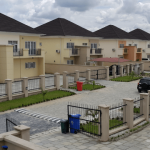Mindy Jensen is the co-host of the “BiggerPockets Money” podcast and the co-author of “First-Time Home Buyer, The Complete Playbook To Avoiding Rookie Mistakes.” She’s also a licensed real estate agent in Colorado and has been buying and selling homes since 1998. She is passionate about helping buyers make intelligent, informed decisions about their home purchases.
Recognized by GOBankingRates as one of Money’s Most Influential, here she shares the types of properties real estate investors should avoid, why you shouldn’t fall in love with a potential investment property and how to get started in real estate investing if you’re low on capital.
What advice would you give your younger self about real estate investing?
START! Get a license and start working as a real estate agent. Dive deep into your market and learn everything you can about it. What are houses selling for in great condition? What are they selling for in awful condition? What is the job market like? What are houses renting for?
Once I knew all of that, I’d start buying houses — old houses in appreciating markets to fix up and sell, nicer houses in stable markets to rent out to great tenants. I would also tell myself to avoid condos, townhouses, and homes in strict HOA neighborhoods or neighborhoods that have high association fees. I want to be in control of my expenses.
What are the biggest mistakes people make when it comes to investing in real estate?
- Not running the numbers and making sure there is enough left over for a decent return on their investment.
- Falling in love with a property — there will be others that are just as great. If the numbers don’t work, don’t buy the property.
- Not having a large reserve fund or being able to cash flow repairs and mortgage payments. If [the COVID-19 pandemic] taught us anything, it’s to be well funded.
‘Rich Dad Poor Dad’ Author Robert Kiyosaki: You Should Never Say ‘I Can’t Afford That’
What are some rules of thumb you swear by when it comes to choosing an investment property?
- Have multiple exit strategies. The market can change in a split second. Your sale can fall through at the last minute. Be prepared for anything, and be able to pivot with circumstances out of your control.
- If the property does not have more than one way to make you money, it isn’t a great investment.
- NEVER buy weird. Weird, unique, unusual are all four-letter words in real estate. You want normal, traditional, interesting-but-ordinary when you are buying a house.
What advice would you give to someone who wants to invest in real estate but may not have the capital to make such a large investment?
If you want to get started investing without a lot of money, you’re starting from a weak position. How are you going to handle emergency repairs? How are you going to pay the mortgage when your tenant does not pay rent? There are ways to mitigate your exposure, such as “house hacking” — renting an extra room(s) in your house — or live-in flipping, where you actually live in the home while you’re renovating it. (Bonus tax advantages for living in your flip: if you live in/own it for two of the last five years, you pay $0 in capital gains taxes, up to $250,000 if you’re single and $500,000 if you’re married.)
There are other ways around not having capital like partnering with someone who does have the money. If you go this route, make sure to get everything in writing before you enter the partnership. Everyone is friends before the deal, but not always friends afterward. Write up the “rules” of the investment/partnership while everyone is still friendly.






